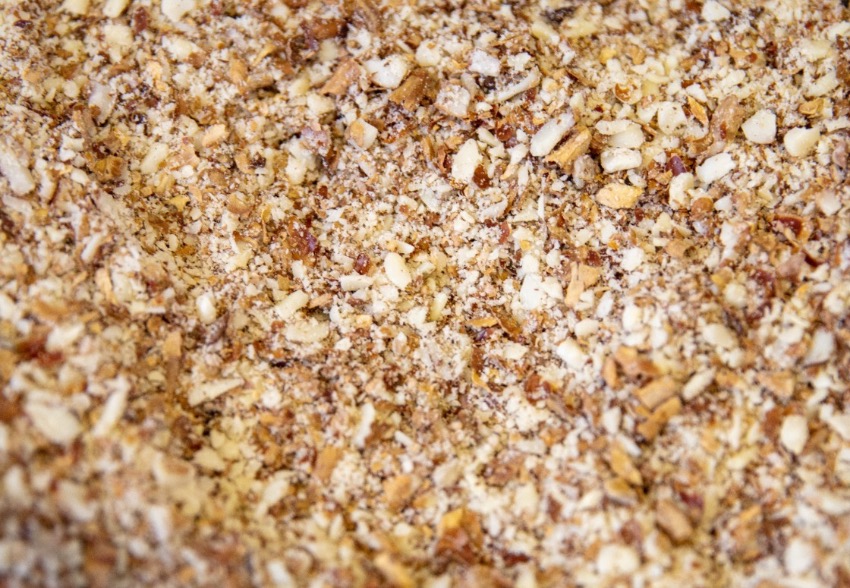

In the heart of the African savannas, where traditions blend with the splendor of nature, grows the sacred Marula tree, with its golden fruits from which a unique plant essential oil is extracted. This oil can help promote intense hydration, combat the signs of aging, and improve skin elasticity, leaving it smooth and radiant!
It's no coincidence that Marula plant oil is known as the "African miracle"! It comes from the famous Marula fruit (Sclerocarya birrea1) that grows on a tree native to the savannas and tropical forests of East Africa, from which a plant oil rich in linoleic acids, omega 9, and flavonoids is extracted.
For those unfamiliar, it is a robust fruit tree that can reach up to 18 meters in height, with deciduous leaves that fall in the dry season, yellow flowers that attract various pollinators, and juicy fruits with a hard seed inside. However, the Marula is more than just a simple tree! Since ancient times, it has had profound cultural and spiritual significance, being considered sacred and associated with ancestral rituals and traditions.
In the past, the bark, leaves, and fruits of the Marula were used in ceremonies, and local tribes used different parts of the tree to treat diseases and make tools.
Indeed, there is strong archaeological evidence of the use of Marula oil since the Stone Age, extracted from the kernels inside the fruit through a process that involved drying and crushing the kernels before pressing them to obtain the oil, which the tribes then applied to the skin and hair as a nourishing moisturizer to protect against the harsh climate of the African savannas.
Much later, in the 1990s, Western scientists and cosmetic companies began to study and use Marula oil in beauty products due to its high content of monounsaturated fatty acids and antioxidants. Today, this essential plant oil is highly valued in the cosmetic industry as a key ingredient in many skin and hair care products.
A focus on sustainable harvesting characterizes the processing and production of the essential plant oil from the African sacred tree, Sclerocarya birrea. Generally, the harvesting of Marula fruits is done manually by local communities, which, on the one hand, ensures sustainable economic development and improves the quality of life of the communities and, on the other hand, guarantees a low environmental impact, allows only ripe fruits to be selected, reduces waste, and ensures that the tree continues its natural life cycle.
Marula plant oil is extracted through cold pressing of the seed kernels because this is the most sustainable and effective method for preserving the integrity of the nutrients, reducing energy use, and, of course, not involving chemicals that could be harmful to users and the environment. Furthermore, whenever possible, production units use renewable energy sources, such as solar or wind power, to reduce the carbon footprint of Marula plant oil production and reuse husks and seed residues as natural fertilizers or animal feed.

Marula plant oil has a light almond scent, which, although neutral, is very pleasant, a color that ranges from pale yellow to soft golden, and a fluid, non-greasy texture, suitable for cosmetic and personal care products.
According to various studies2, Marula plant oil contains in its composition amino acids, fatty acids (including oleic acid, palmitic acid, linoleic acid, palmitoleic acid, and stearic acid), and antioxidants.
Marula oil is safe for topical use3, being effective in moisturizing and maintaining skin health without causing skin irritations.
Recent studies4 confirm that Marula plant oil is predominantly composed of oleic acid (70-78%) and linoleic acid, which contributes to its emollient and moisturizing properties, essential for skin and hair health.
Are you interested in integrating Marula essential plant oil into your product portfolio? Great! You will have the opportunity to offer your customers the benefits of a natural and versatile ingredient, with essential fatty acids and antioxidants that make it the ideal component for skin and hair care products. How to do this? By creating new products or incorporating Marula oil into existing product lines, such as moisturizers, facial serums, shampoos, and conditioners.
While you're at it, also take the opportunity to highlight the history, sustainable production, and benefits of Marula plant oil to attract environmentally conscious consumers who are looking for 100% natural products that offer effective results.
Right here on the Scents from Nature website! Our Marula plant oil, known as the "African miracle," is rich in linoleic acids, omega 9, and flavonoids, and has a relatively low tocopherol content. Thus, it has different beneficial properties that you can add to your products as highly interesting adjuvants for various types of formulas.
References:
1. en.wikipedia.org/wiki/Sclerocarya_birrea
2. www.ncbi.nlm.nih.gov/pmc/articles/PMC5804067/
3. cosmotality.com/ingredients/marula-oil-skin-benefits/
4. hannahsivak.com/blog/how-good-is-marula-oil/
5. pubmed.ncbi.nlm.nih.gov/12033809/
6. www.tandfonline.com/doi/abs/10.1080/87559129.2012.660716
7. www.ncbi.nlm.nih.gov/pmc/articles/PMC5804067/
8. www.ever-eden.com/blogs/behind-the-scenes/marula-oil-it-s-not-just-for-your-face
9. pubmed.ncbi.nlm.nih.gov/12033809/
10. www.researchgate.net/publication/241736737_Sclerocarya_birrea_Marula_An_African_Tree_of_Nutritional_and_Medicinal_Uses_A_Review
11. www.ncbi.nlm.nih.gov/pmc/articles/PMC5804067/
12. www.researchgate.net/publication/241736737_Sclerocarya_birrea_Marula_An_African_Tree_of_Nutritional_and_Medicinal_Uses_A_Review